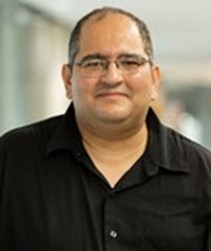Dr. Fathy, Hosam K.
Seminar Information

In this talk, I will take you on two brief journeys that have fascinated me, personally, for a few years, now. The first journey will focus on the lithium-sulfur (Li-S) battery chemistry, which promises to achieve revolutionary specific energy levels but faces several critical technical challenges. I will summarize my collaboration with colleagues and students on several challenges associated with Li-S battery management and control. These challenges include modeling, parameterization, identifiability, test trajectory optimization, and state estimation (including dip point detection). The second journey will focus on peritoneal oxygenation, a potential medical intervention for treating patients suffering from respiratory failure due to ailments including COVID-19. I will summarize my collaboration with colleagues and students on the development of a peritoneal oxygenation system, its use for large animal experiments, and the identification of both peritoneal mechanics and gas transport models based on these experiments. I will conclude the seminar by bringing these two journeys together into an insight I learned from a colleague long ago, about the cardinal sin in control and how to avoid it.
Hosam K. Fathy earned his B.S., M.S., and Ph.D. degrees, all in Mechanical Engineering, from the American University in Cairo (1997), Kansas State University (1999), and the University of Michigan (2003). After working as a control systems engineer in the automotive industry (2003-2004), postdoctoral research fellow at the University of Michigan (2004-2006), and assistant research scientist at Michigan (2006-2010), he joined Penn State university as an assistant professor (2010-2015), the Bryant early career associate professor (2015-2018), and the Bryant early career professor (2018-2019). He then joined the University of Maryland as a Mechanical Engineering professor (2019-present), where he continues to do work in his main area of expertise – namely, the application of optimal control theory to energy (and healthcare) systems.
